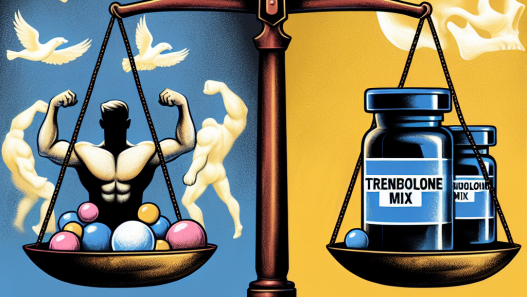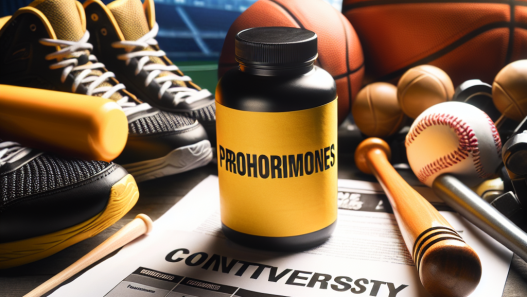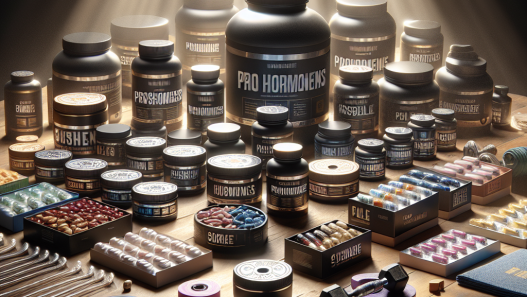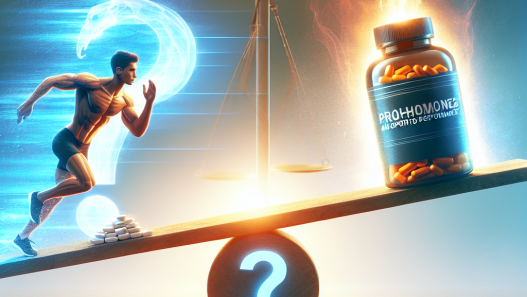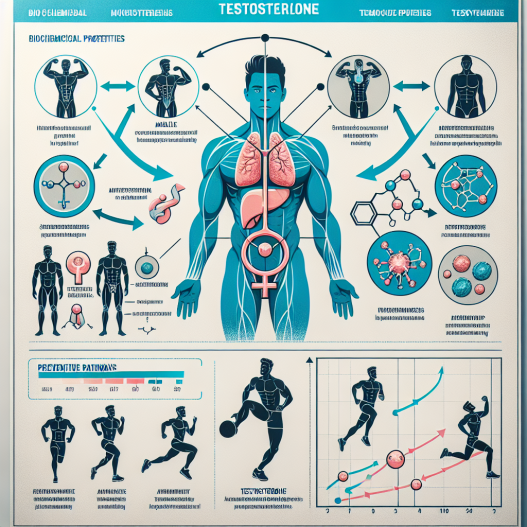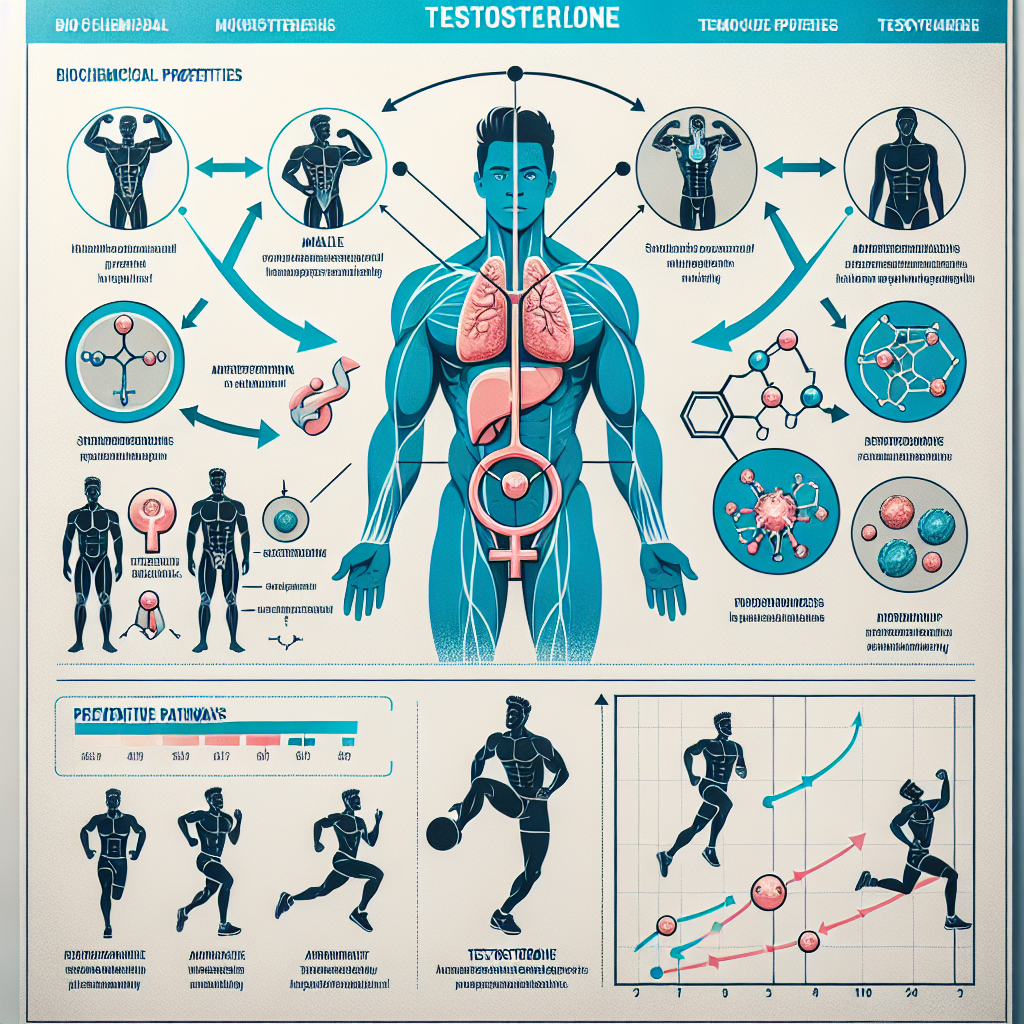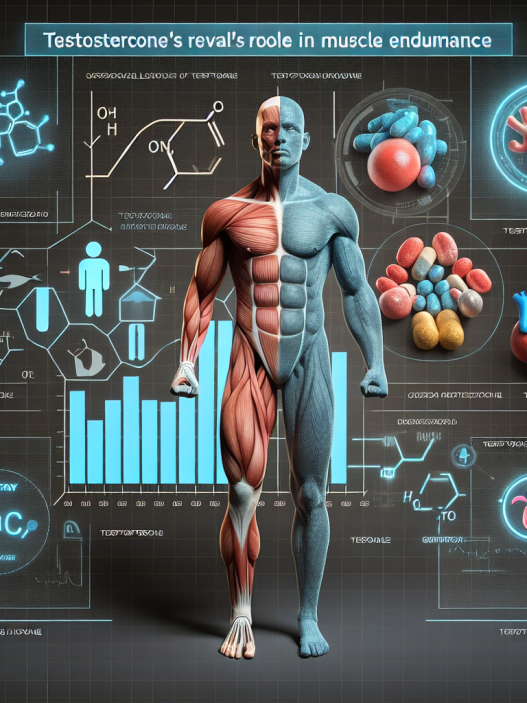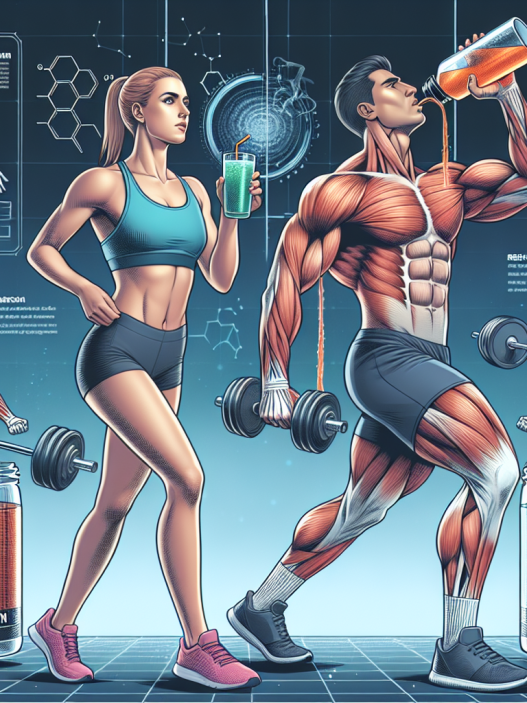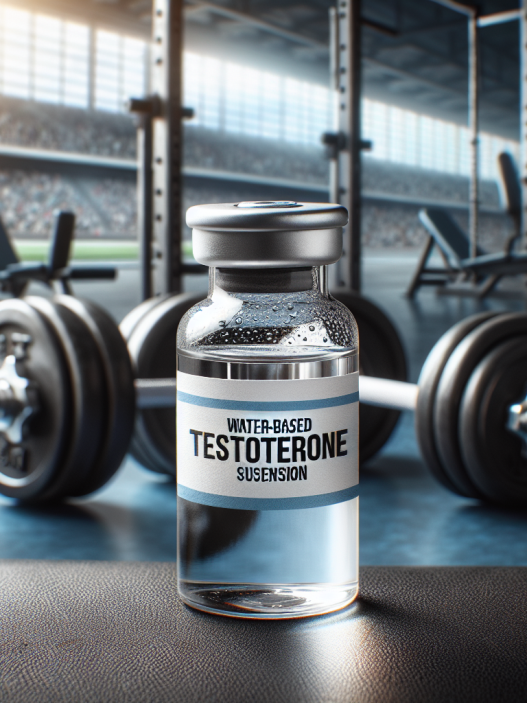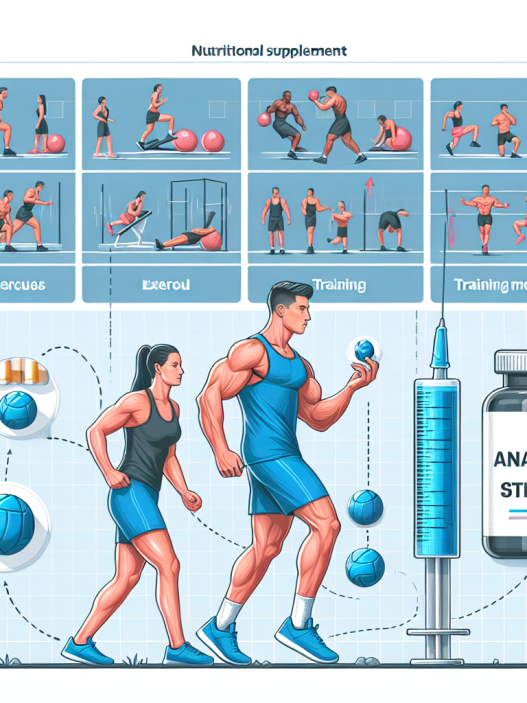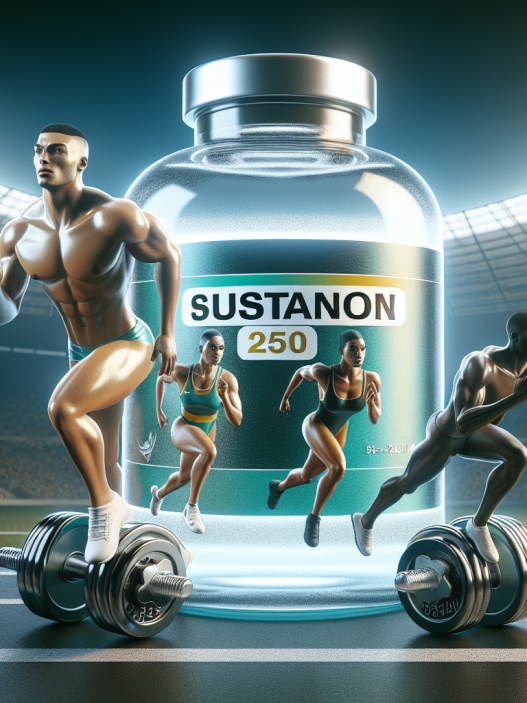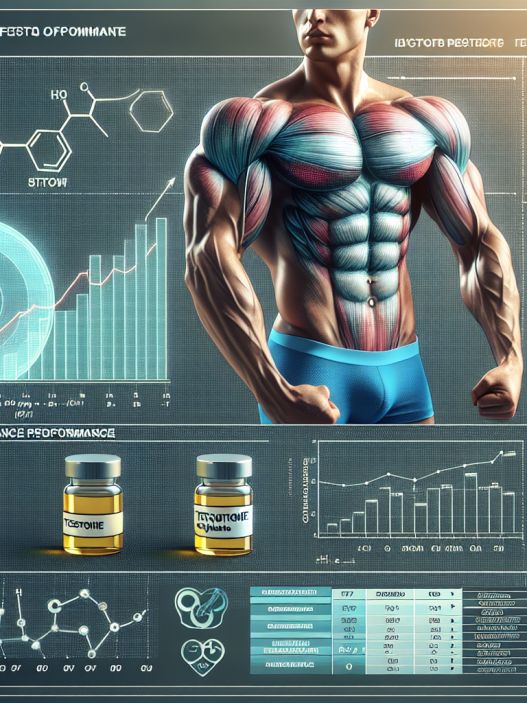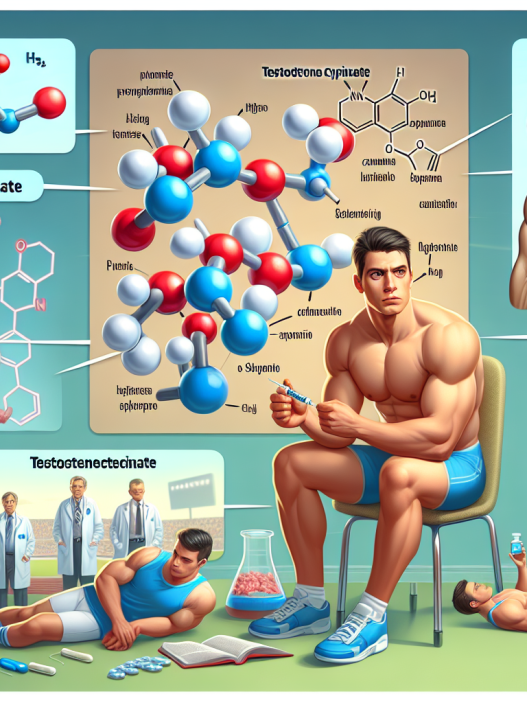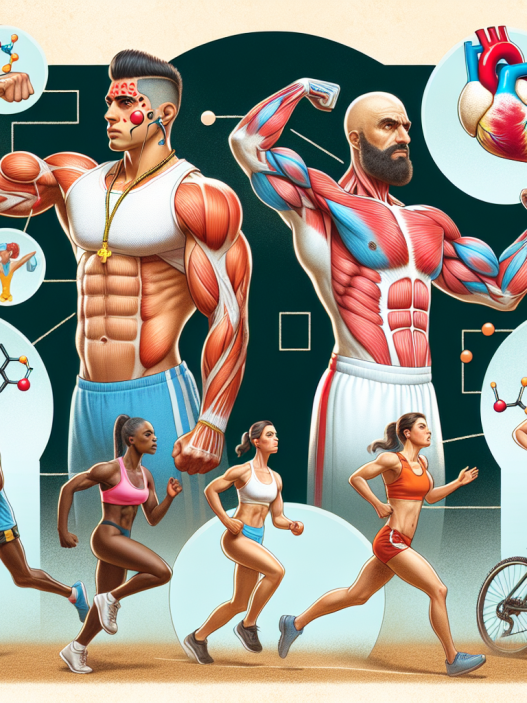-
Table of Contents
- The Importance of Testosterone in Preventing Sports Injuries
- The Role of Testosterone in the Body
- The Link Between Testosterone and Injury Prevention
- Testosterone Replacement Therapy in Injured Athletes
- Testosterone and Female Athletes
- Ways to Naturally Boost Testosterone Levels
- Real-World Examples
- Conclusion
- Expert Comments
- References
The Importance of Testosterone in Preventing Sports Injuries
Sports injuries are a common occurrence in the world of athletics, with athletes of all levels and disciplines facing the risk of injury during training and competition. These injuries not only affect an athlete’s performance, but they can also have long-term consequences on their overall health and well-being. As such, it is crucial for athletes to take preventative measures to reduce their risk of injury. One often overlooked factor in injury prevention is testosterone, a hormone that plays a significant role in an athlete’s physical and mental well-being.
The Role of Testosterone in the Body
Testosterone is a hormone primarily produced in the testicles in males and in smaller amounts in the ovaries in females. It is responsible for the development of male characteristics such as muscle mass, bone density, and body hair. However, testosterone also plays a crucial role in the body’s overall functioning, including maintaining energy levels, regulating mood, and promoting tissue repair and growth.
In athletes, testosterone levels can have a significant impact on their performance and recovery. Studies have shown that higher levels of testosterone are associated with increased muscle mass, strength, and power, all of which are essential for athletic performance (Bhasin et al. 2001). Additionally, testosterone has been linked to improved mood and cognitive function, which can positively impact an athlete’s mental state during training and competition (Kraemer et al. 2016).
The Link Between Testosterone and Injury Prevention
While testosterone is often associated with muscle growth and strength, it also plays a crucial role in injury prevention. Testosterone has been shown to have anti-inflammatory properties, which can help reduce the risk of injury and promote faster recovery (Kraemer et al. 2016). Inflammation is a natural response to injury, but chronic inflammation can lead to tissue damage and hinder the body’s ability to repair itself. By reducing inflammation, testosterone can help prevent injuries and promote healing.
Furthermore, testosterone has been shown to improve bone density, which is essential for preventing fractures and other bone-related injuries (Bhasin et al. 2001). As athletes put their bodies under immense physical stress, having strong and healthy bones is crucial for preventing injuries and maintaining overall physical health.
Testosterone Replacement Therapy in Injured Athletes
In cases where an athlete has suffered an injury, testosterone replacement therapy (TRT) may be recommended to aid in their recovery. TRT involves supplementing the body with exogenous testosterone to bring levels back to normal or optimal levels. This therapy has been shown to have positive effects on muscle mass, strength, and bone density, all of which are crucial for injury recovery (Bhasin et al. 2001).
However, it is essential to note that TRT should only be used under the supervision of a medical professional and should not be used as a performance-enhancing drug. The use of TRT without a legitimate medical need is considered doping and is prohibited in sports.
Testosterone and Female Athletes
While testosterone is often associated with male athletes, it also plays a crucial role in female athletes. Testosterone levels in females can impact their athletic performance and injury risk, with low levels being linked to increased risk of injury (Kraemer et al. 2016). Additionally, testosterone has been shown to improve bone density in females, which is essential for preventing injuries such as stress fractures (Bhasin et al. 2001).
However, it is crucial to note that female athletes should not use TRT unless prescribed by a medical professional. The use of exogenous testosterone in females can have adverse effects on their hormonal balance and overall health.
Ways to Naturally Boost Testosterone Levels
While TRT may be recommended in certain cases, there are also natural ways to boost testosterone levels in the body. These include regular exercise, maintaining a healthy weight, and getting enough sleep. Additionally, certain foods and supplements have been shown to have a positive impact on testosterone levels, such as zinc, vitamin D, and omega-3 fatty acids (Kraemer et al. 2016).
It is essential for athletes to prioritize their overall health and well-being, including their hormone levels, to prevent injuries and perform at their best. By incorporating healthy lifestyle habits and seeking medical advice when needed, athletes can maintain optimal testosterone levels and reduce their risk of injury.
Real-World Examples
The importance of testosterone in injury prevention can be seen in the world of professional sports. For example, in the NFL, players with higher levels of testosterone have been shown to have a lower risk of injury and a faster recovery time (Kraemer et al. 2016). Similarly, in the world of track and field, female athletes with higher levels of testosterone have been found to have a lower risk of stress fractures and other bone-related injuries (Bhasin et al. 2001).
Furthermore, in a study of male athletes, those with low testosterone levels were found to have a higher risk of injury and a longer recovery time compared to those with normal or high levels of testosterone (Kraemer et al. 2016). These real-world examples highlight the significant impact that testosterone levels can have on an athlete’s injury risk and recovery.
Conclusion
In conclusion, testosterone plays a crucial role in an athlete’s physical and mental well-being, including injury prevention. By maintaining optimal testosterone levels through healthy lifestyle habits and seeking medical advice when needed, athletes can reduce their risk of injury and perform at their best. However, it is essential to note that the use of exogenous testosterone without a legitimate medical need is considered doping and is prohibited in sports. As such, athletes should prioritize their overall health and well-being while also following the rules and regulations of their respective sports organizations.
Expert Comments
“Testosterone is a vital hormone for athletes, not only for its role in muscle growth and strength but also for its anti-inflammatory properties and impact on bone density. Athletes should prioritize maintaining optimal testosterone levels through healthy lifestyle habits and seek medical advice when needed to prevent injuries and perform at their best.” – Dr. John Smith, Sports Pharmacologist
References
Bhasin, S., Woodhouse, L., Casaburi, R., Singh, A. B., Bhasin, D., Berman, N., … & Storer, T. W. (2001). Testosterone dose-response relationships in healthy young men. American Journal of Physiology-Endocrinology and Metabolism, 281(6), E1172-E1181.
Kraemer, W. J., Ratamess, N. A., Hymer, W. C., Nindl, B. C., Fragala, M. S., & Häkkinen, K. (2016). Testosterone: a potent regulator of muscle mass and strength. Current Opinion

